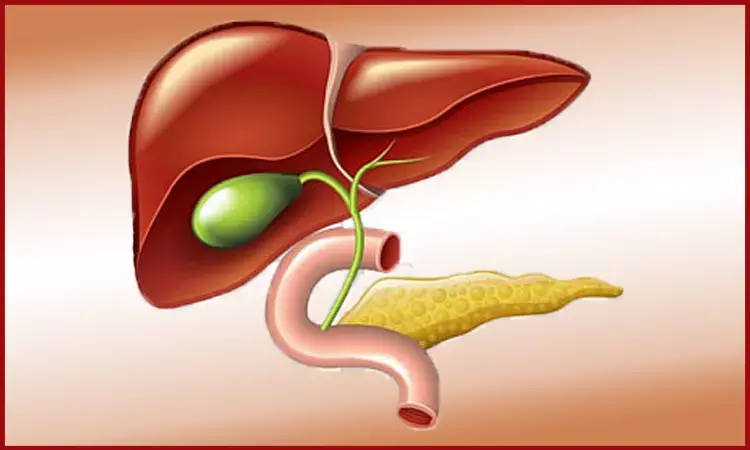- Home
- Medical news & Guidelines
- Anesthesiology
- Cardiology and CTVS
- Critical Care
- Dentistry
- Dermatology
- Diabetes and Endocrinology
- ENT
- Gastroenterology
- Medicine
- Nephrology
- Neurology
- Obstretics-Gynaecology
- Oncology
- Ophthalmology
- Orthopaedics
- Pediatrics-Neonatology
- Psychiatry
- Pulmonology
- Radiology
- Surgery
- Urology
- Laboratory Medicine
- Diet
- Nursing
- Paramedical
- Physiotherapy
- Health news
- Fact Check
- Bone Health Fact Check
- Brain Health Fact Check
- Cancer Related Fact Check
- Child Care Fact Check
- Dental and oral health fact check
- Diabetes and metabolic health fact check
- Diet and Nutrition Fact Check
- Eye and ENT Care Fact Check
- Fitness fact check
- Gut health fact check
- Heart health fact check
- Kidney health fact check
- Medical education fact check
- Men's health fact check
- Respiratory fact check
- Skin and hair care fact check
- Vaccine and Immunization fact check
- Women's health fact check
- AYUSH
- State News
- Andaman and Nicobar Islands
- Andhra Pradesh
- Arunachal Pradesh
- Assam
- Bihar
- Chandigarh
- Chattisgarh
- Dadra and Nagar Haveli
- Daman and Diu
- Delhi
- Goa
- Gujarat
- Haryana
- Himachal Pradesh
- Jammu & Kashmir
- Jharkhand
- Karnataka
- Kerala
- Ladakh
- Lakshadweep
- Madhya Pradesh
- Maharashtra
- Manipur
- Meghalaya
- Mizoram
- Nagaland
- Odisha
- Puducherry
- Punjab
- Rajasthan
- Sikkim
- Tamil Nadu
- Telangana
- Tripura
- Uttar Pradesh
- Uttrakhand
- West Bengal
- Medical Education
- Industry
Gastric ectopic pancreas found during a bariatric surgery procedure- Case study

Awadh Alqahtani and associates from King Saud University, Riyadh, Saudi Arabia reported the first case of gastric heterotopic pancreas which was found incidentally during a bariatric surgery procedure.
The case study is published in the International Journal of Surgery Case Reports.
Heterotopic pancreas, also known as the ectopic pancreas, is defined as the presence of pancreatic tissue outside its normal location and without anatomic and vascular continuity with the main body of the pancreas. The incidence of the heterotopic pancreas has been reported as 0.5 % during laparotomies and at autopsy ranging from 0.6–14 %.
The Heterotopic pancreatic tissue can be discovered in the stomach (particularly antrum), duodenum, jejunum, or a Meckel diverticulum. Surgical resection is the mainstay treatment if the heterotopic pancreas is symptomatic or when the lesion is found incidentally during surgery in order to prevent complications.
Most patients are asymptomatic and typically incidentally discovered while undergoing laparotomy for other indications or endoscopic examinations of the gastrointestinal tract or at autopsy.
The authors studied a 28 years old obese male, medically free electively admitted for laparoscopic sleeve gastrectomy. Intraoperatively after dissecting the greater omentum from the stomach and inserting the 36 Fr gastric bougie, a small oval shape mass about 1 cm close to the lesser curvature on the anterior surface of the gastric antrum was noted.
Macroscopically, it looked benign and a thorough laparoscopic exploration showed no signs of other organs involvement. Antrectomy and mini-gastric bypass were planned and done. However, the postoperative course was uneventful. The histopathological examination of the antrectomy specimen showed a heterotopic pancreas in the subserosa of the gastric antrum.
In such situations, surgical resection is the mainstay treatment if the heterotopic pancreas in symptomatic or when the lesion is found incidentally during surgery in order to prevent complications. It can be resected open or laparoscopically or endoscopically.
Hence, the authors concluded that "heterotopic pancreas should always be considered in the differential diagnosis of incidentally found gastric lesions and can be safely resected."
"This is the first reported case of gastric heterotopic pancreas which is found incidentally during a bariatric surgery procedure in a morbidly obese patient which changed the decision of doing sleeve gastrectomy to mini-gastric bypass", they further added.
Dr. Nandita Mohan is a practicing pediatric dentist with more than 5 years of clinical work experience. Along with this, she is equally interested in keeping herself up to date about the latest developments in the field of medicine and dentistry which is the driving force for her to be in association with Medical Dialogues. She also has her name attached with many publications; both national and international. She has pursued her BDS from Rajiv Gandhi University of Health Sciences, Bangalore and later went to enter her dream specialty (MDS) in the Department of Pedodontics and Preventive Dentistry from Pt. B.D. Sharma University of Health Sciences. Through all the years of experience, her core interest in learning something new has never stopped. She can be contacted at editorial@medicaldialogues.in. Contact no. 011-43720751
Dr Kamal Kant Kohli-MBBS, DTCD- a chest specialist with more than 30 years of practice and a flair for writing clinical articles, Dr Kamal Kant Kohli joined Medical Dialogues as a Chief Editor of Medical News. Besides writing articles, as an editor, he proofreads and verifies all the medical content published on Medical Dialogues including those coming from journals, studies,medical conferences,guidelines etc. Email: drkohli@medicaldialogues.in. Contact no. 011-43720751


